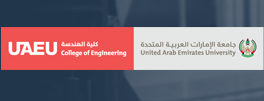Date of Acceptance
May 2021
Date of Submission
May 2021
Abstract
The paper sets out to evaluate the Arab city experience in running urban observatories (UOs). As Arab states face the challenges of staggering rates of urbanization (i,e; Kuwait 100%, and Qatar 99.2%), their cities require the provision of more services and more efficient urban management. As the world is witnessing some drastic changes such as the shift from government to governance and the rise of the civil society, the Arab city cannot be immune to such transformations. Some have lately adopted urban observatories (UOs) as a tool to cope with these changes. The government observatory type has been embraced as it best fits the centralized management deep-rooted in the Arab city. As any experience, it has its ups and downs. This study attempts to unravel why Arab UOs have done relatively better in some cities and not so in others.
The primary qualitative data was collected using interview questionnaires with open-ended items. The questionnaires were distributed on technicians working in UOs in different cities of the Arab world. To gather the secondary data, UO published reports and websites were used. The analysis used the Nvivo-12 program to analyze the qualitative data.
The study revealed the weaknesses of Arab UOs can be attributed to lack of reliable and valid data, deficiency of highly qualified experts and technicians, absence of public participation and lack of necessary financial support. To overcome these drawbacks, the paper recommends to create a solid database to which data from all partners is instantly transferred and regularly updated. It is also important to make partnerships with university institutions and research centers as they constitute a reliable pool of experts. Needless to say that public involvement and political support are of paramount importance to the success of any UO.
Recommended Citation
Ledraa, Tahar; Althabt, Abdullah; and Hallawani, Majed
(2021)
"An Appraisal of the Arab City Experience in Running Urban Observatories,"
Emirates Journal for Engineering Research: Vol. 26:
Iss.
2, Article 1.
Available at:
https://scholarworks.uaeu.ac.ae/ejer/vol26/iss2/1

